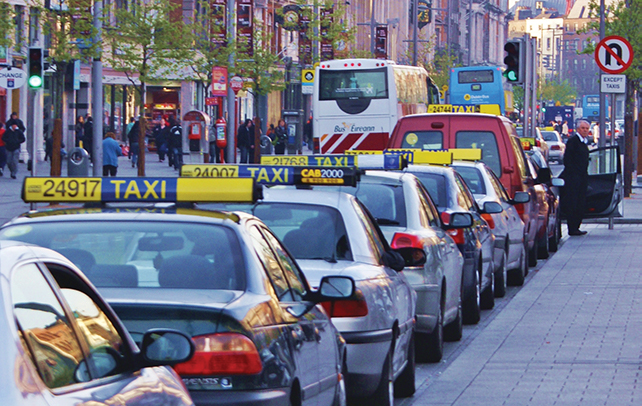
The shortage of taxis in Ireland is an issue that has profoundly been discussed and debated, but no real meaningful or productive improvement has been accomplished as of yet.
While many taxi drivers have left the sector due to the inactivity caused by the pandemic, these vacancies were not filled significantly, or alternatively such drivers never returned to the service post-pandemic.
The apparent shortage of taxis has inspired a debate within the media, in respect of whether the Irish government should allow ridesharing services like Uber and Lyft to operate in their full and intended capacity due to the insufficiency of taxis available nationally.
Currently all ridesharing services are banned in Ireland and all taxi companies are regulated and licensed through the National Transport Authority (NTA) which is a government agency.
While the pandemic has further impacted the shortage of taxis in Ireland to an extent, one must also take into account the excessive regulations and bureaucratic licensing applications imposed on drivers and the compulsory price increases foisted on customers in recent years. So why would competition between ridesharing services and taxis not be encouraged?
Such a ban on ridesharing services means in the Republic of Ireland, entrepreneurs are not allowed to test such a free-market hypothesis and customers are not allowed experience the benefits provided by such e-commerce conveyances.
Instead, the population is excepted to wait for the NTA to sort out the shortage of taxis on the publics behalf and customers can only avail of the benefits of such commercial choice when traveling in other countries.
While the shortage of taxis becomes a growing issue, naturally all options will be proposed publicly and within the media. However, the current propositions found in the media overlooks the primitive ban on ridesharing companies, and instead chiefly argues for the introduction of such ridesharing services to be legalised as a last resort, this proposition fails to recognise the need for a competitive alternative service, regardless of a taxi shortage.
The introduction of such ridesharing companies like Uber, Lyft or hypothetically an established Irish company with the freedom to operate in their intended service model, should not be chiefly introduced merely as a reserve, but as a legitimate and safe service.
The ban on ridesharing companies or any enterprise not providing a uniformed taxi service is overreaching, archaic and bluntly eliminates anyone’s capability or innovative input that could improve the hired transport industry for customers and drivers, operating free from the uncompromising NTA directives.
Jack Redmond
Image credit: Wikipedia
